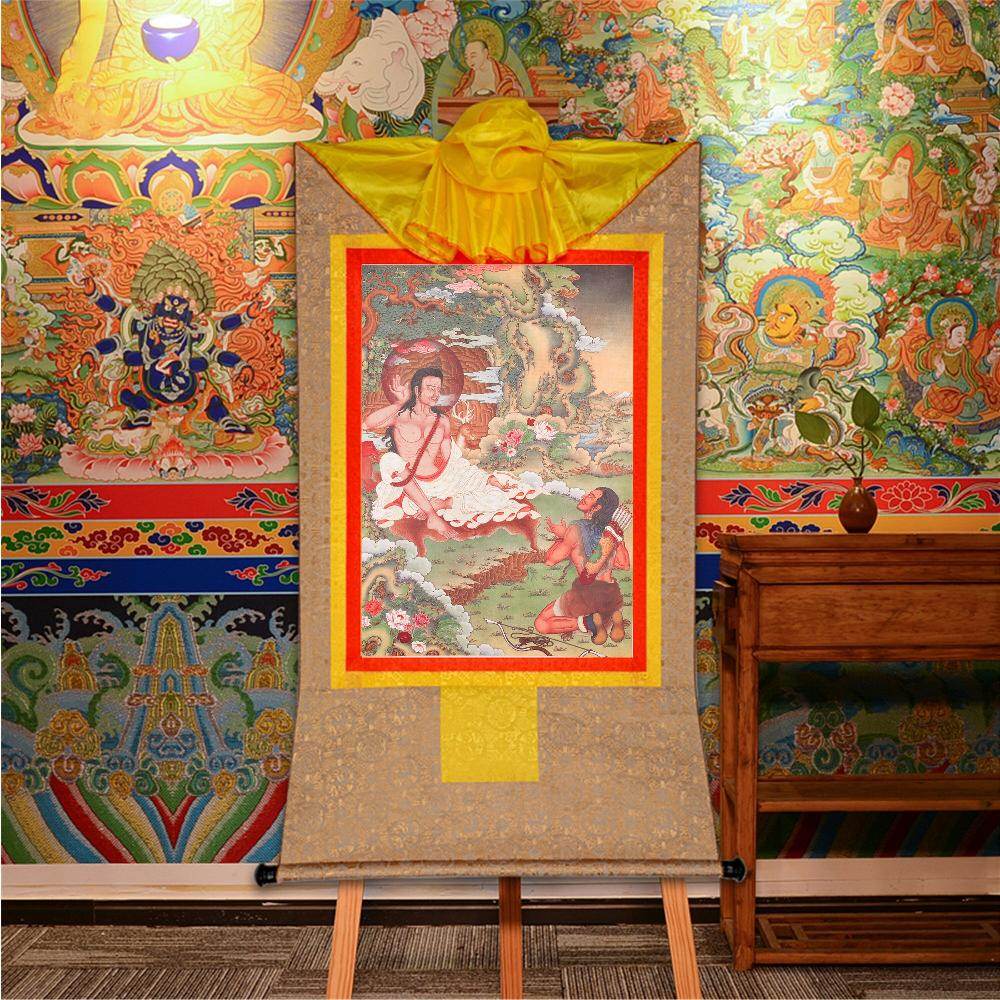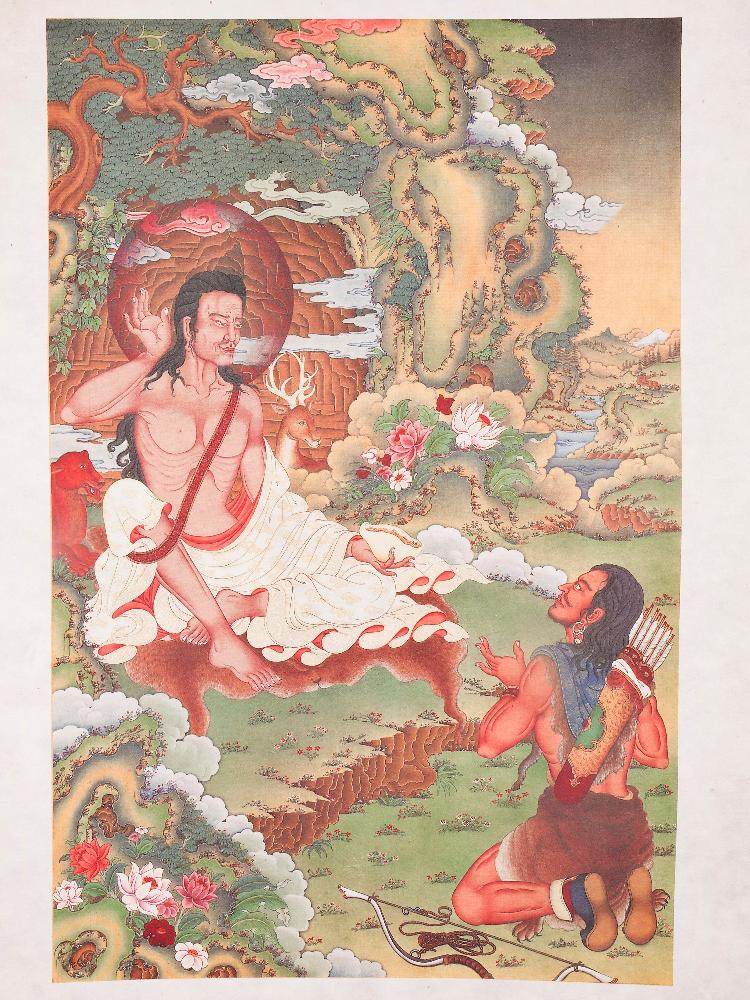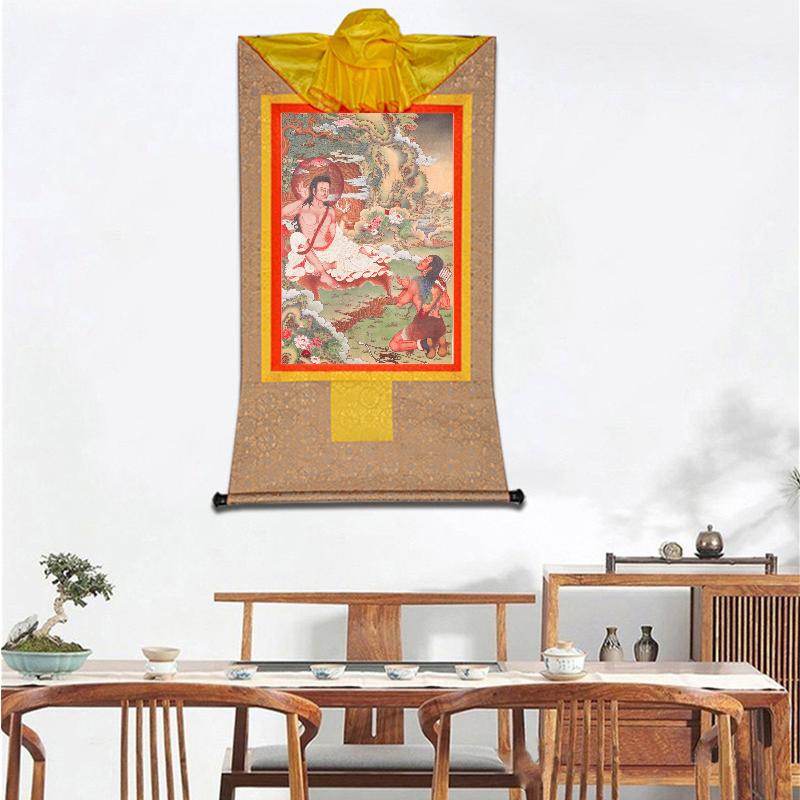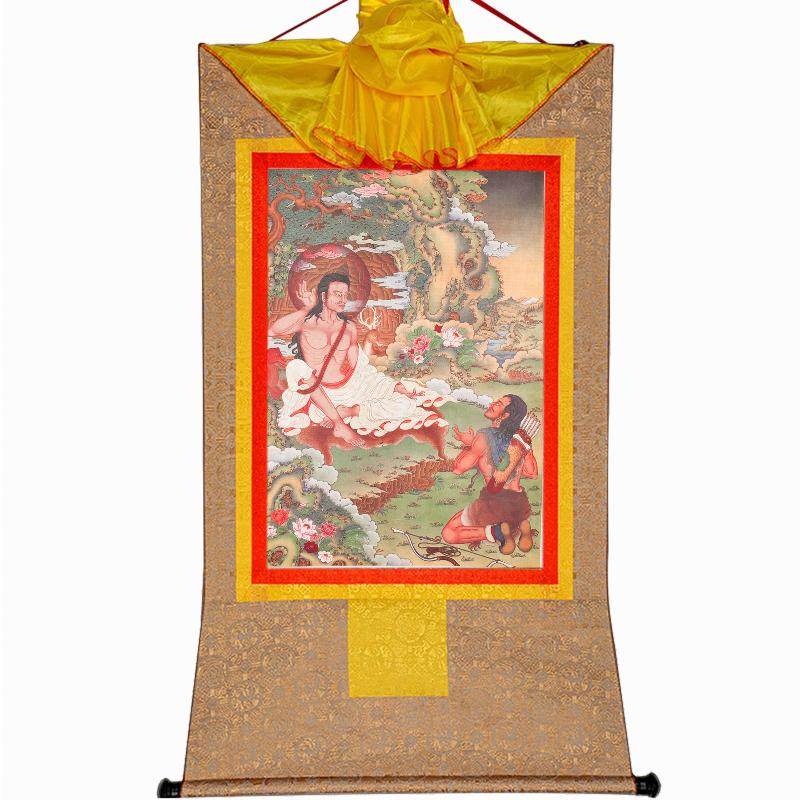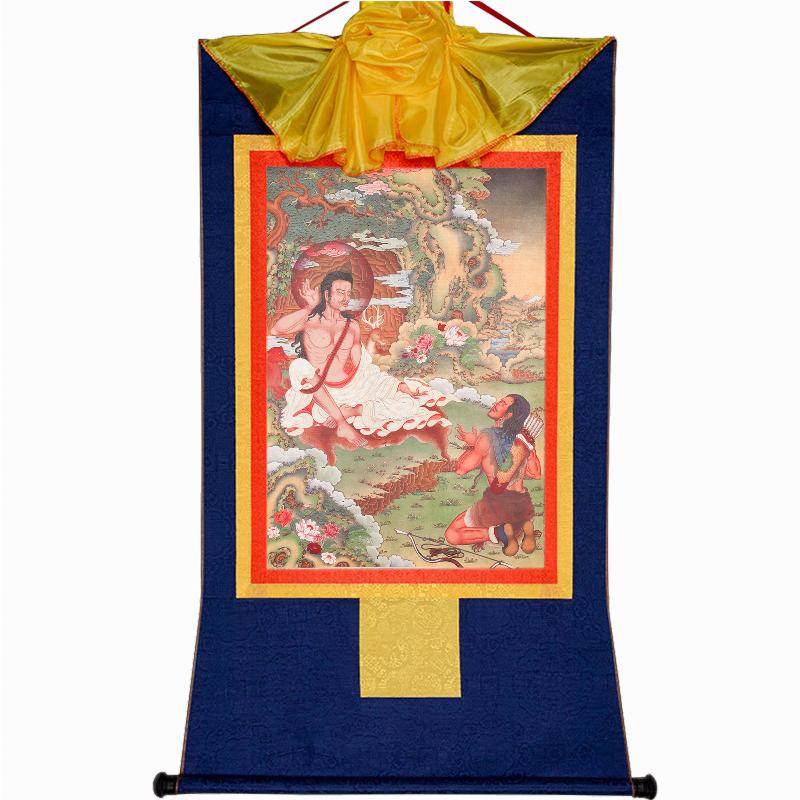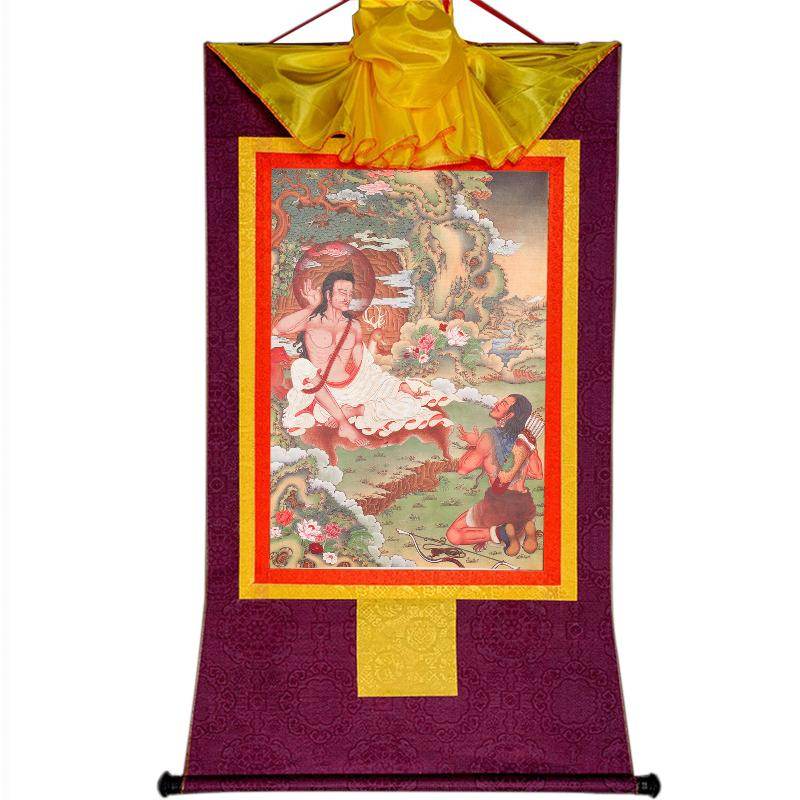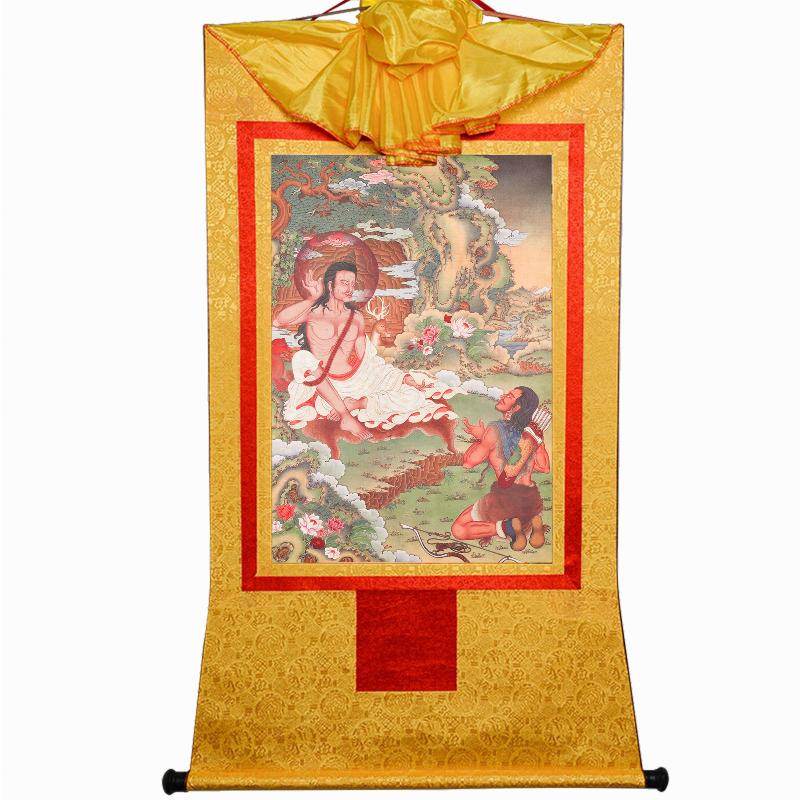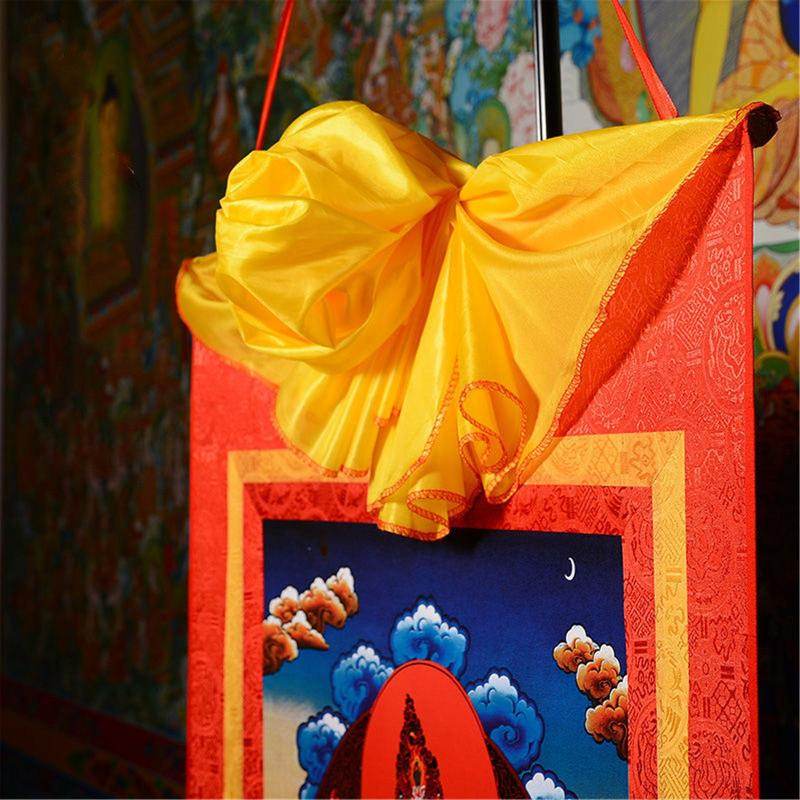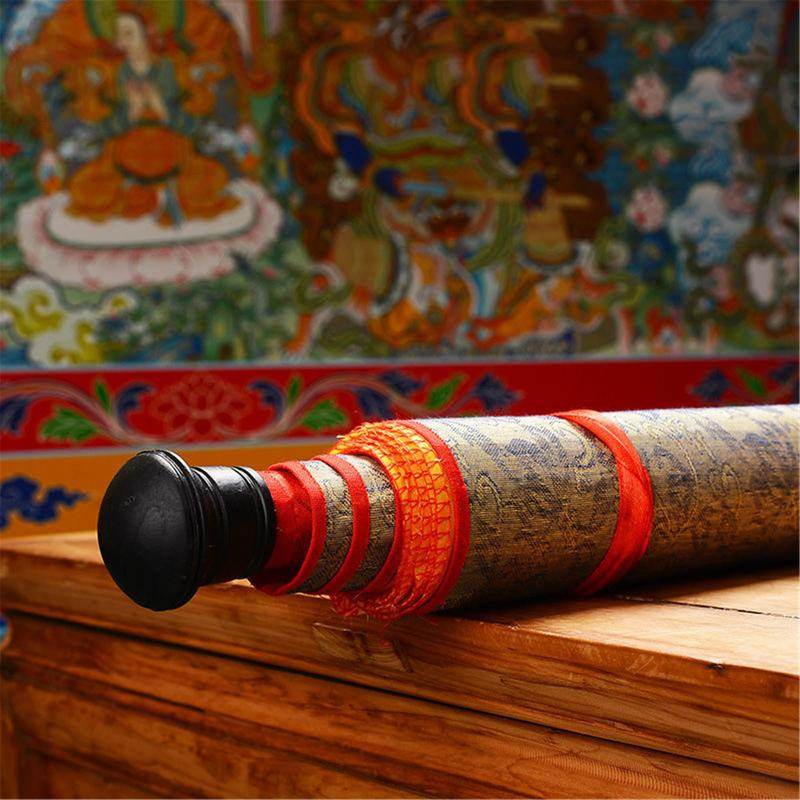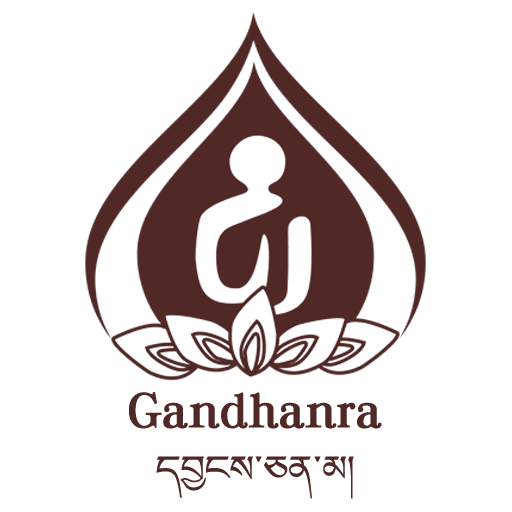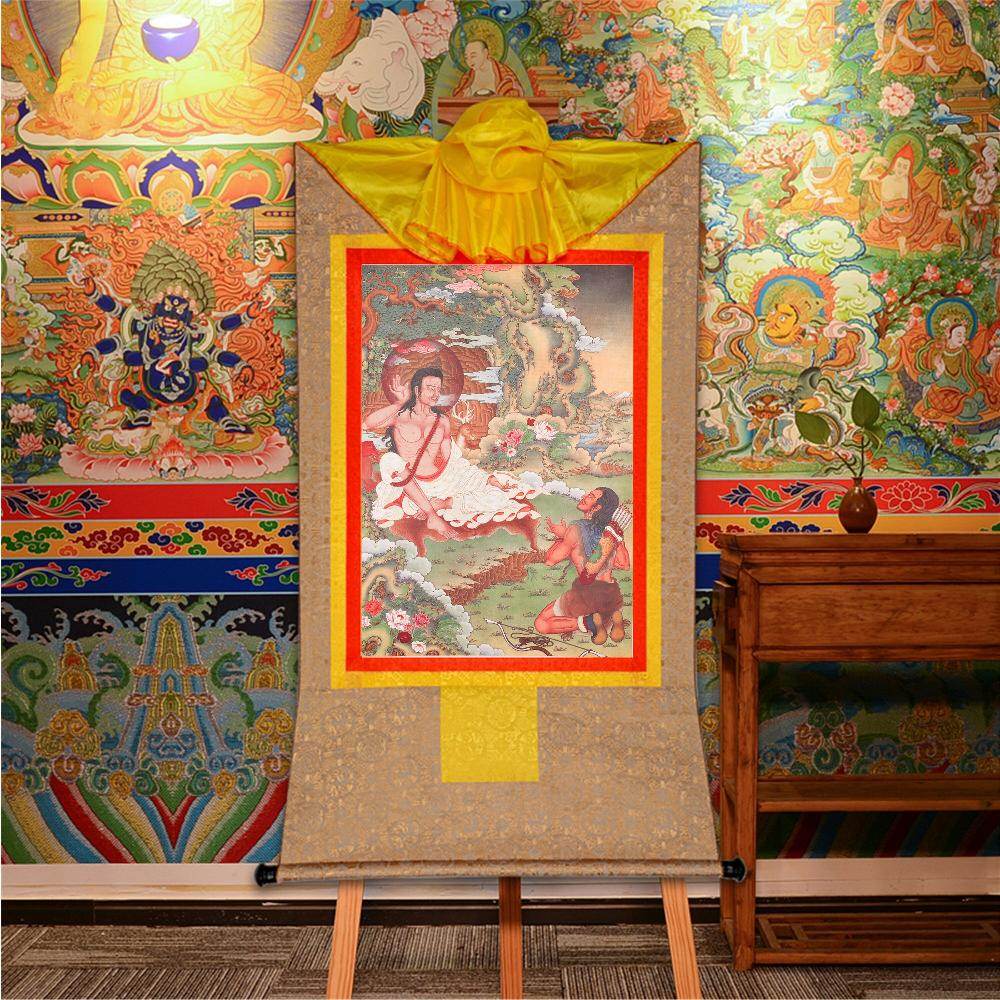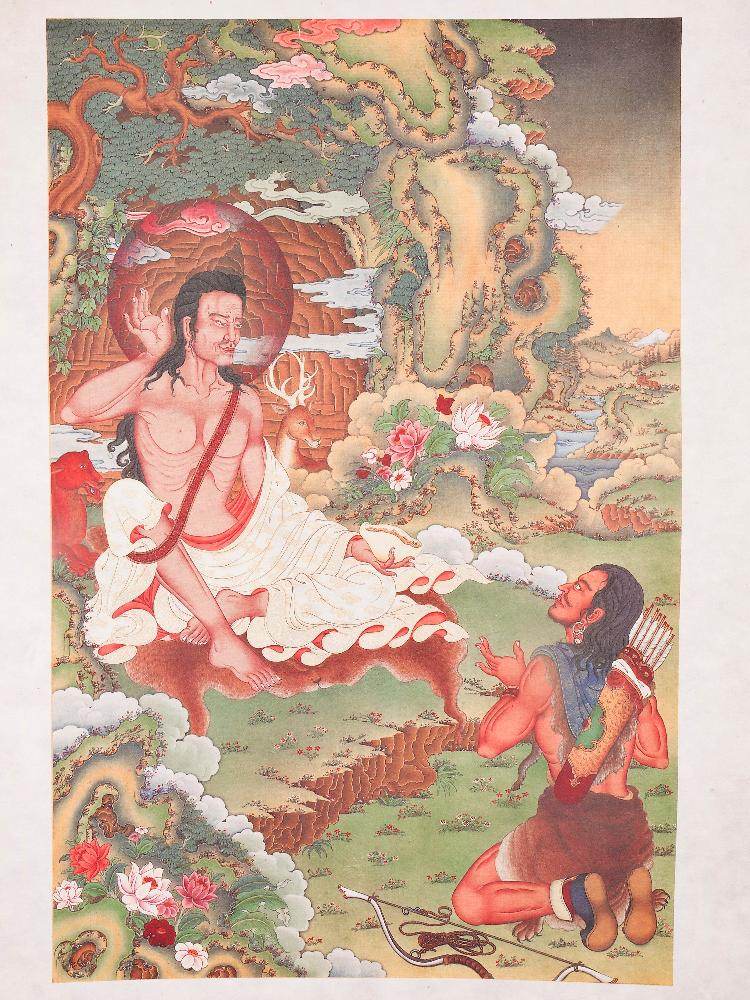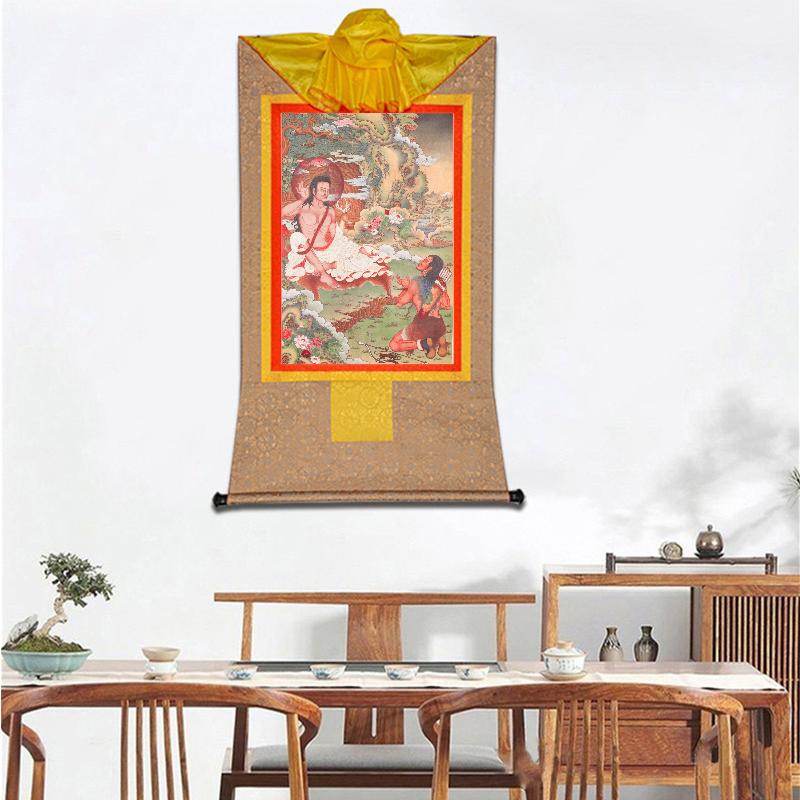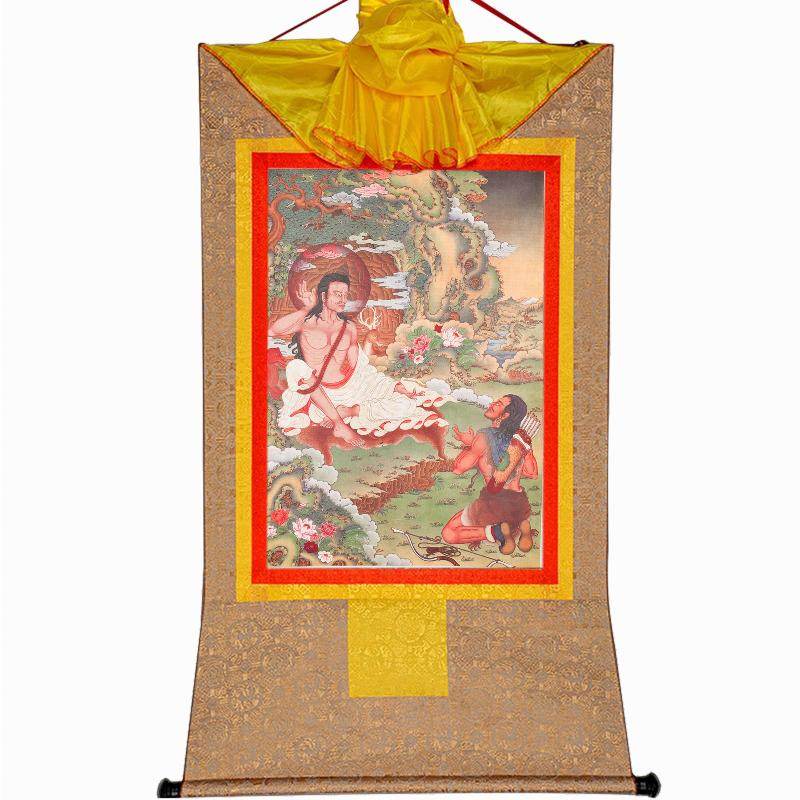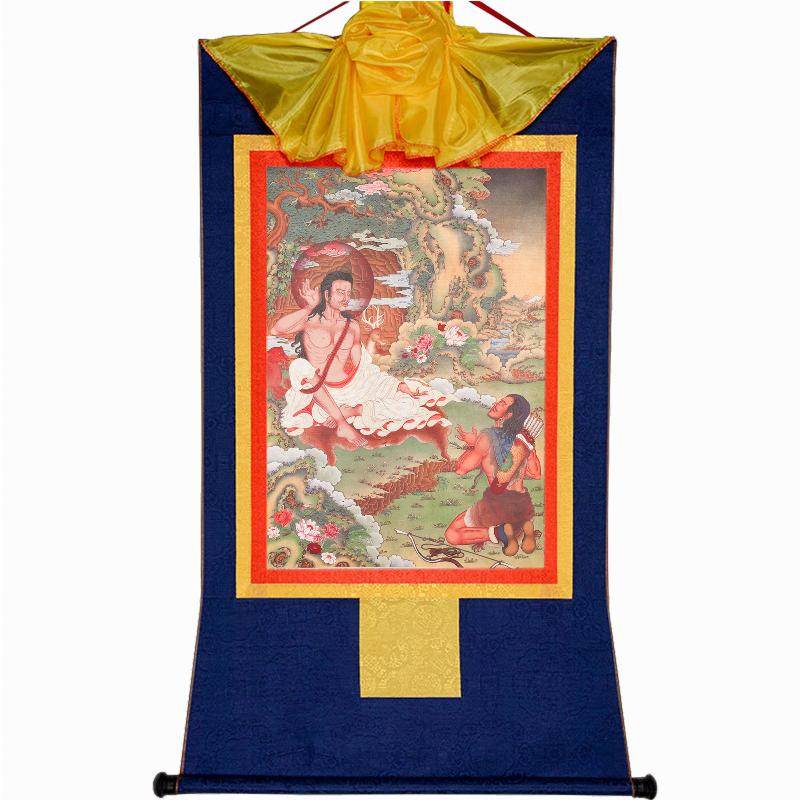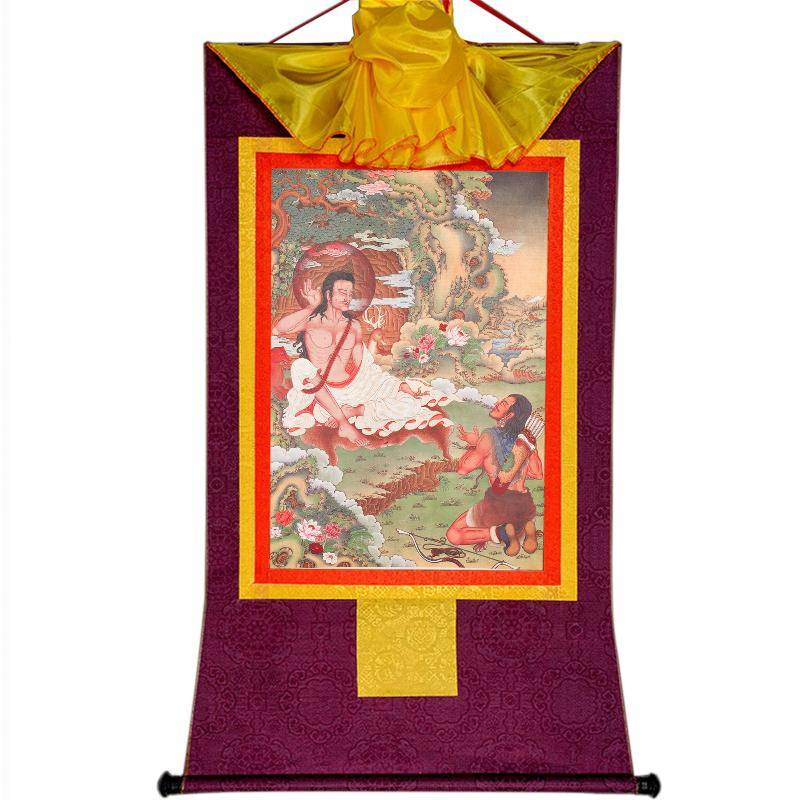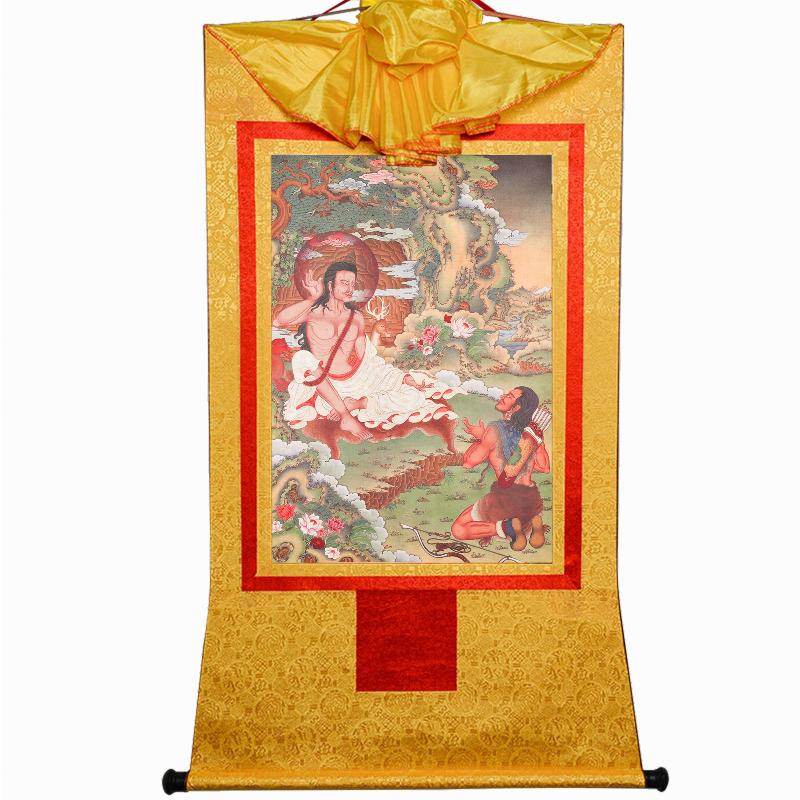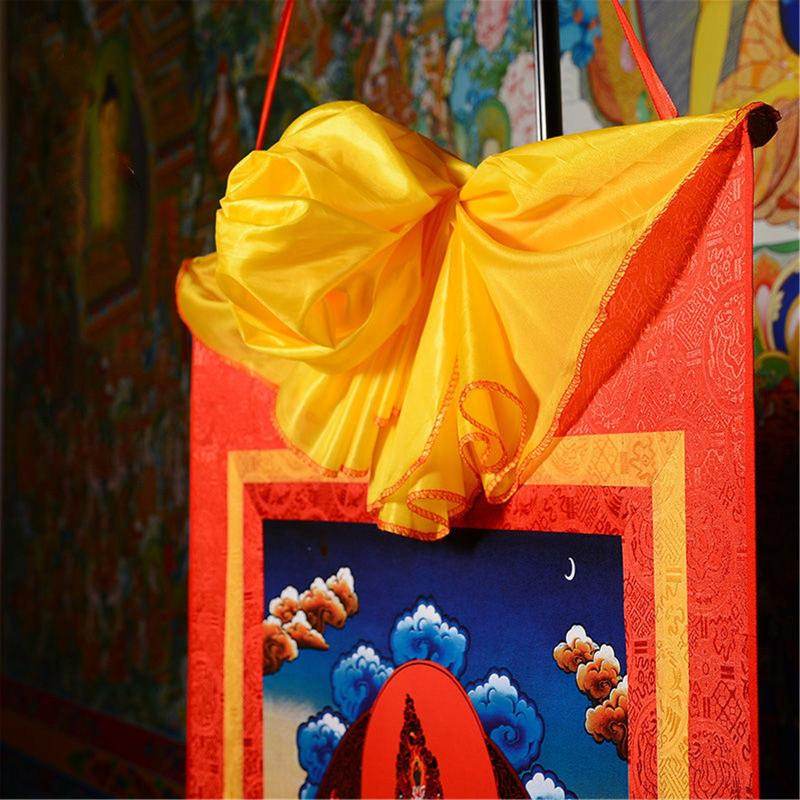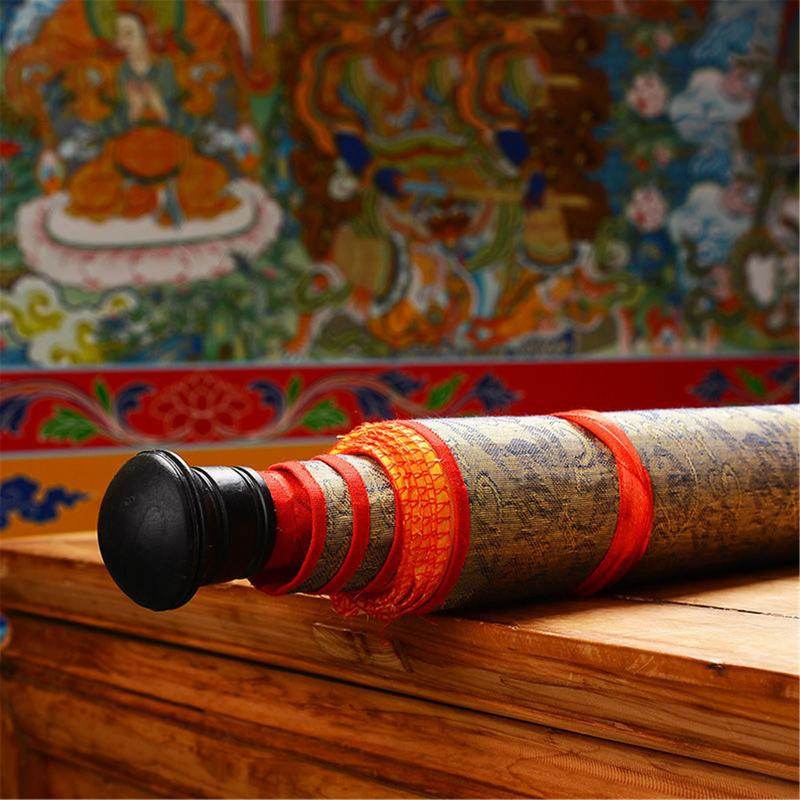Jetsun Milarepa,Woodblock Thangka Art
Jetsun Milarepa,Woodblock Thangka Art
Couldn't load pickup availability
❤This thangka comes from the Derge Sutra Printing Temple (a famous cultural heritage).
It is made on traditional Tibetan hand-made drawing paper using ancient engraving and printing techniques. (Please see the introduction below) The hand-made seal at the bottom of the painting contains: carved Tibetan paper by Derge Sutra Printing Temple(德格印经院雕刻藏纸)
It still being made in the same way as they have been for almost three hundred years: handprinted from hand-carved wooden blocks.
You can see the exquisite plant lines on the drawing paper, because the paper is handmade from pure natural plant materials, such as Pennisetum.
❤9 DIFFERENT FRAME COLORS
There are a total of 9 different colors for you to choose, please select the color number when you purshace.
Frames of different colors may vary in size, please understand.
❤Details
Material: cloth, silk,canvas,Tibetan Paper
The front is covered with silk to protect Thangka With exquisite wooden painting shaft and lanyard
❤Size & Weight
Top width:55cm / 21.65" Bottom width:69 cm / 27.16" Height:100cm / 39.37"
Core Size: 33cm(Width) *50 cm(Height) (about 12.99" * 19.68")
❤ABOUT MILAREPA
Jetsun Milarepa (Tibetan: རྗེ་བཙུན་མི་ལ་རས་པ, Wylie: rje btsun mi la ras pa, 1028/40–1111/23) was a Tibetan siddha, who was famously known as a murderer when he was a young man, before turning to Buddhism and becoming a highly accomplished Buddhist disciple. He is generally considered one of Tibet's most famous yogis and spiritual poets, whose teachings are known among several schools of Tibetan Buddhism.
He was a student of Marpa Lotsawa, and a major figure in the history of the Kagyu school of Tibetan Buddhism.He is also famous for the feat of climbing Mount Kailash. Lopez notes that Tsangnyön Heruka used stylistic elements from the biography of Gautama Buddha to portray Milarepa effectively as a Tibetan Buddha, "born and enlightened in Tibet, without going to India or receiving the direct instructions of an Indian master."The life story of Milarepa portrays "the rapid method of the Tantric path," in which liberation is gained in one lifetime.
It describes how Milarepa practiced the generation stage and completion stage, to achieve mahamudra, "spontaneous realization of the most profound nature of mind."Yet, in his instructions to his Tibetan audiences, Milarepa refers to the basic Buddhist teachings of "impermanence, the sufferings of saṃsāra, the certainty of death and the uncertainty of its arrival, the frightful rebirth that is the direct result of our benighted deeds." But, his own life also is an example that even a murderer can transform into a Buddha.
Lopez further notes that The Life of Milarepa portrays two parallel worlds, a profane world and a sacred world, which are ultimately one, showing that the world itself is sacred.
❤ABOUT DERGE SUTRA PRINTING TEMPLE
The Dêrgê Barkang (pronunciation "Dehr-gheh", alternative names Derge Parkhang, Dege Parkhang, Derge Sutra Printing Temple, Dege Yinjing Yuan, Derge Barkhang, Dege Barkhang, Barkhang, Parkhang, Bakong Scripture Printing Press and Monastery) is the barkang (printing house) associated to the Goinqên Monastery.
It is one of the foremost cultural treasures of Tibet.
Derge is a county seat in a high valley in Kham, an eastern district of traditional Tibet which is now part of China's Sichuan Province.
The Derge Parkhang is a living institution devoted to the printing and preservation of Tibetan literature, a printing temple that holds the greatest number of Tibetan woodblocks in the world. The Derge Sutra Printing Temple (Parkhang in Tibetan) is one of the most important cultural, social, religious and historical institutions in Tibet.
Founded in 1729 by Demba Tsering, the fortieth King of Derge (1678–1739) with the spiritual and literature assistance of the 8th Tai Situ Panchen Chokyi Jungne, the Derge Parkhang is an active center for publication of Tibetan Buddhist sutra, commentaries, and thangka as well as works of history, technology, biography, medicine and literature.
Books are still being made in the same way as they have been for almost three hundred years: handprinted from hand-carved wooden blocks. Cinnabar is used to colour the text red,in which workers can print eight to fifteen pages manually a minute,2500 in a day,from wooden blocks that have already been engraved with text.Thirty printers are in working condition where printers work in pairs, one puts ink on wooden press, later cleaned in a trough, while the other rolls a piece of paper using a roller which is imprinted red with sayings of Buddha.
❤NOTICE
1.This thangka is made to order, it will takes about 5 days to complete and ship.
2.Please allow 1-2cm error due to manual measurement.
3.The color may have different as the difference display.
Please make sure you do not mind before you bid.
